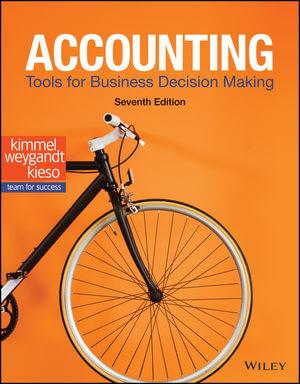Question
A manufacturing company is evaluating two options for new equipment to introduce a new product to its suite of goods. The details for each option
A manufacturing company is evaluating two options for new equipment to introduce a new product to its suite of goods. The details for each option are provided below:
Option 1
- $65,000 for equipment with useful life of 7 years and no salvage value.
- Maintenance costs are expected to be $2,700 per year and increase by 3% in Year 6 and remain at that rate.
- Materials in Year 1 are estimated to be $15,000 but remain constant at $10,000 per year for the remaining years.
- Labor is estimated to start at $70,000 in Year 1, increasing by 3% each year after.
Revenues are estimated to be:
Year 1 Year 2 Year 3 Year 4 Year 5 Year 6 Year 7 - 75,000 100,000 125,000 150,000 150,000 150,000
Option 2
- $85,000 for equipment with useful life of 7 years and a $13,000 salvage value
- Maintenance costs are expected to be $3,500 per year and increase by 3% in Year 6 and remain at that rate.
- Materials in Year 1 are estimated to be $20,000 but remain constant at $15,000 per year for the remaining years.
- Labor is estimated to start at $60,000 in Year 1, increasing by 3% each year after.
Revenues are estimated to be:
Year 1Year 2Year 3Year 4Year 5Year 6Year 7-80,00095,000130,000140,000150,000160,000
The company's required rate of returnand cost of capital is 8%.
Management has turned to its finance and accounting department to perform analyses and make a recommendation on which option to choose. They have requested that the four main capital budgeting calculations be done: NPV, IRR, Payback Period, and ARR for each option.
For this question, compute all required amounts and explain how the computations were performed. Evaluate the results for each option and explain what the results mean. Based on your analysis, recommend which option the company should pursue.
You need to:
- Perform all calculations correctly.
- Articulate how the calculations were performed, including from where values used in the calculations were obtained.
- Evaluate the results computed and explain the meaning of the results, including why certain measurements are more accurate than others.
- Recommend which option to pursue, supported by well-thought-out rationale, and considering any other factors that could impact the recommendation.
Step by Step Solution
There are 3 Steps involved in it
Step: 1

Get Instant Access to Expert-Tailored Solutions
See step-by-step solutions with expert insights and AI powered tools for academic success
Step: 2

Step: 3

Ace Your Homework with AI
Get the answers you need in no time with our AI-driven, step-by-step assistance
Get Started


